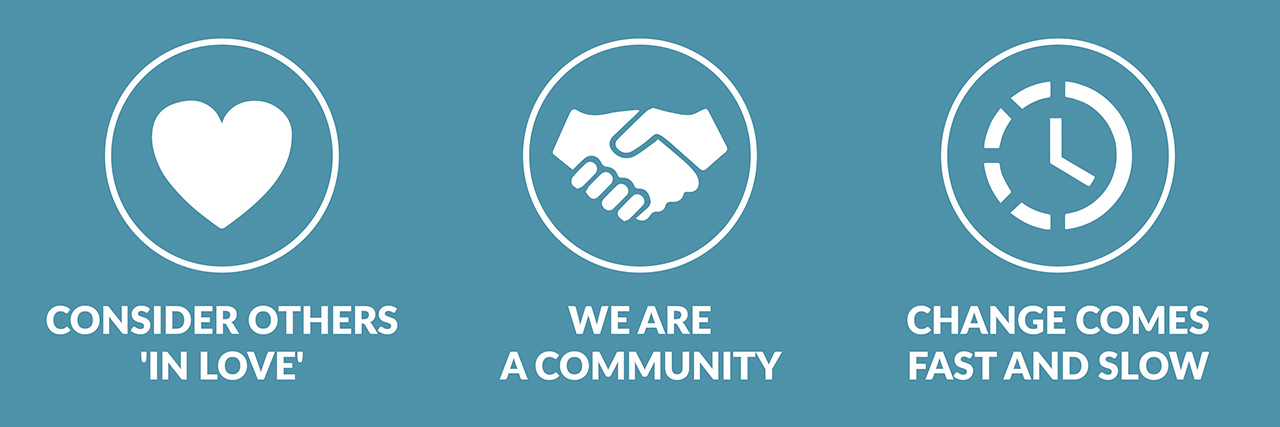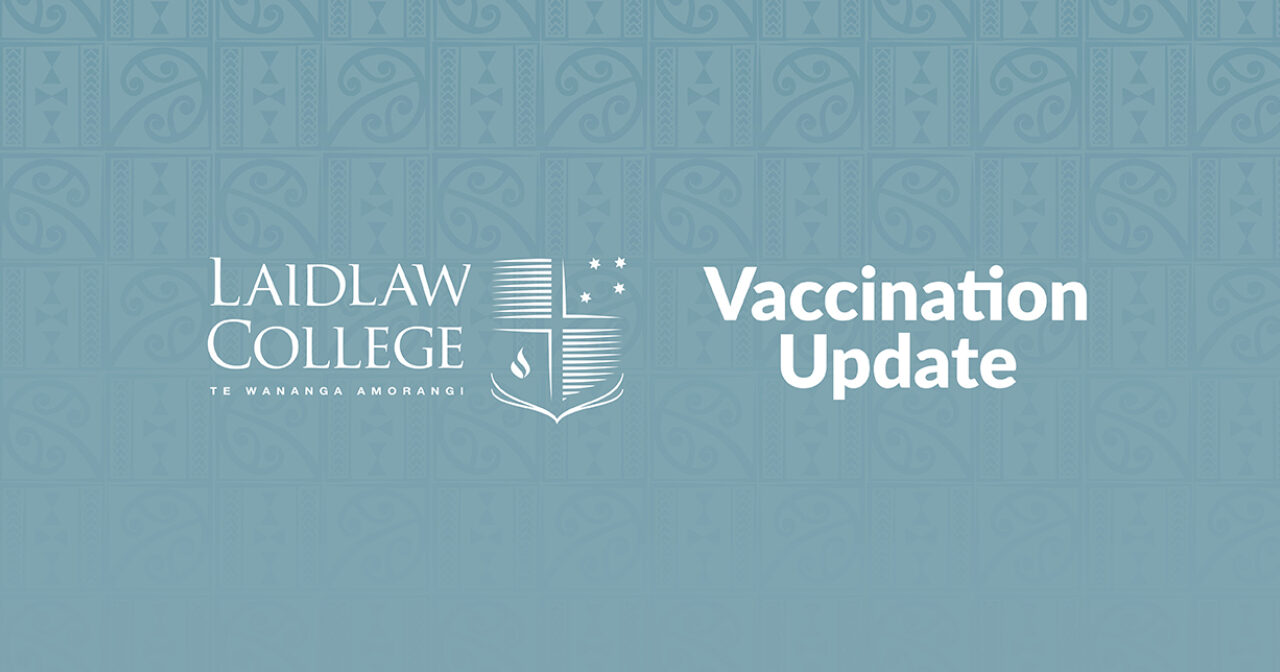14 October 2021
Vaccination Update
Vaccinations, and the implications of vaccine passports, are an important conversation that we will all need to be having in the coming days and weeks. You will have seen the announcements about vaccination requirements for education (not yet including the tertiary sector) and health workers. It’s right that Christians give serious thought to these matters – the personal and societal implications are too important to ignore. As a College, we are committed to protecting our vulnerable, not letting divisiveness take root in our community, and seeking to work to recognise and respond wisely to practicalities and realities.
There are three frames that are shaping the way that we are thinking about this as College leadership.

Christians are commanded to love our neighbours as we love ourselves (Mk 12:31). The love we are to show to others through our actions is to be self-sacrificing and servant-hearted. As Jesus says in John 15:13, “Greater love has no one than this: to lay down one’s life for one’s friends.” Paul writes in Philippians 2:4–5 that we are to “consider others before ourselves”, and to “look not only to your own interests, but also to the interests of others.”
This means that we cannot ever ask the question “how can I best look after my own health and wellbeing” in isolation from the question “how can I best act to protect the health and wellbeing of those around me?”
To put it another way, our individual bodies, wellbeing and rights are not the only things at stake when we consider vaccines, lockdown restrictions and other public health measures. As in everything, Christians are invited to consider the wellbeing of others before ourselves.
We are encouraging and endorsing vaccination for everyone in the
Laidlaw community. We recognise that there are health and other reasons
why some may not choose this.

Vaccination status is showing all the hallmarks of an identity-defining practice. It is likely that in the coming weeks and months people will increasingly tribalise and there will be an upsurge in vilification of the “other side”. Some will even go so far as to leave or join churches on the basis of whether those communities encourage or discourage vaccination. It is critical that we model what it is to be a community where we work to resist this divisiveness; dependent on Jesus, the head of this body, to be the One who holds us, in our difference, together. There are many reasons and motivations behind people’s choices in this space – we must be careful with our attitudes, language and assumptions.
One thing is for sure, none of us can fully understand or explain what is happening around us, nor can we be certain of what the future holds. And so, we need each other, and the Holy Spirit, now more than ever.
This piece of culture-building, that sense of a community growing together through change, is perhaps the most important work that we can do right now. As Paul reminds us in 1 Corinthians 12, “God has put the body together... so that there should be no division in the body, but that its parts should have equal concern for each other. If one part suffers, every part suffers with it; if one part is honoured, every part rejoices with it.” This is true for those who suffer from anxiety about catching COVID, as it is true for those who are anxious about the vaccine and the social and practical implications of remaining unvaccinated. Through Christ, we must be people who can feel, act and speak with compassion – recognising the stress that is inevitably experienced when well-motivated and conscientious people come to different conclusions while seeking to remain in one community of fellowship.
We will work hard to make sure that at the cultural and identity level, everyone feels welcome and safe in our community.

The regulatory, social and practical landscape around us is such that we are likely to see a number of very rapid changes in the coming days and weeks. Things that we tend to take for granted, like travel freedoms, attending events and venues, even being on campus and in other social contexts, will become much harder for those who are not able to show that they are vaccinated. We will do all that we can to be inclusive, especially with those things in our control (e.g. classes), but it is probable that those who are not vaccinated will have to Zoom in. There will be other things (such as practicums, placements and internships, and general education regulations for public health reasons) that are beyond our control. Laidlaw will work hard to accommodate those who are not vaccinated, but it is inevitable that differences of experience will emerge.
A key consideration for Laidlaw staff is that vaccinations take five weeks to reach peak effectiveness (at least three weeks between shots, and two weeks after the second shot). We are in that overhang where the practical implications of lifting lockdown may bite quicker than some people are anticipating.
There is little likelihood of a return to what we knew as “normal” any time soon. Even as we move into COVID’s endemic phase, other factors like the reintroduction of global influenza strains are going to cause disruptions, and so the practicalities of managing our new reality will be with us for a long time. A “wait it out” approach is not going to serve Laidlaw well, and we will err on the side of proactivity in creating new normal settings as a College.
We appreciate that clarity and continuity is helpful for everyone. Laidlaw's Senior Leadership Team are discussing this regularly and we are committed to discerning ways forward that are clear and well considered. We encourage you to wait upon Christ and invite His presence to be with you. Pray for your colleagues, pray for our students, pray for our partners, and pray for Laidlaw’s leaders, that we will discern wisely and know His grace at all times.

